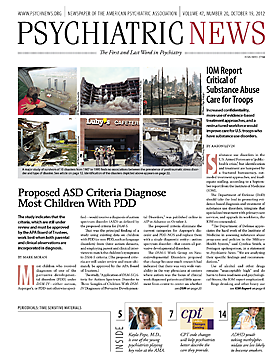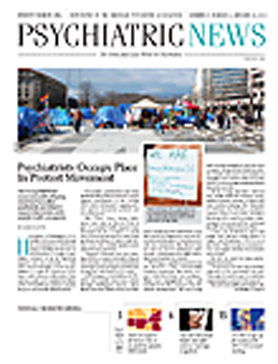The age of a father at the time his child is conceived accounts for nearly all the genetic mutations passed on to the child, and the frequency of mutations increases with advancing paternal age.
The finding, reported in a study published online August 22 in Nature, provides genetic evidence for the long-held observation that older paternal age increases the risk in offspring for disorders such as autism and schizophrenia.
“Our results all point to the possibility that as a man ages, the number of hereditary mutations in his sperm increases, and the chance that a child would carry a deleterious mutation that could lead to diseases such as autism and schizophrenia increases proportionally,” lead author Kari Stefansson, M.D., CEO of deCODE Genetics in Reykjavik, Iceland, said in a statement released by the company on its Web site. “With the results here, it is now clear that demographic transitions that affect the age at which males reproduce can have a considerable impact on the rate of certain diseases linked to new mutation.”
Researchers at deCODE Genetics sequenced the genomes of 78 Icelandic families with offspring who had a diagnosis of autism or schizophrenia, and also sequenced the genomes of an additional 1,859 Icelanders, providing a larger comparative population.
They found that the diversity in rates of mutations of single nucleotide polymorphisms is dominated by the age of the father at conception of the child, with an increase of about two mutations a year. Using statistical models, the researchers estimated that paternal mutations double every 16.5 years.
Additionally, when examining the genomes of families with autism and schizophrenia, they identified mutations in genes in offspring previously implicated in the diseases.
The finding received considerable attention in the lay press, but APA President-elect Jeffrey Lieberman, M.D., noted that the association between older paternal age and risk for schizophrenia or autism has long been observed.
“This is an important study, but the finding isn’t new by any means,” he told Psychiatric News. “What this research does is take this previous observation and link it to genetic mutations demonstrating a mechanism of inheritance to explain the correlation between older paternal age and risk of disorders in offspring.”
He is chair of psychiatry at Columbia University College of Physicians and Surgeons and director of the New York State Psychiatric Institute.
Lieberman explained that spontaneous mutations are universal in humans, and the frequency of the mutations is increased in individuals who have disorders such as schizophrenia and autism.
As a man ages, his sperm cells carry more and more mutations that may be passed on to offspring. “It is assumed that it is the mutations in genes that affect the development of key neural circuits and pathways and produce the phenotype of an illness,” he said in an interview. “This new research showed in a quantifiable way that the likelihood of having a higher frequency of mutations increased with the father’s age.”
Lieberman noted as well that the research provides a natural explanation for at least some of the increasing incidence of autism.
Figures from the Centers for Disease Control and Prevention released this year indicate that 1 out of 88 children has been identified as having an autism spectrum disorder, up dramatically from previous estimates. Lieberman said it is unclear if the increase was real or the result of enhanced diagnostic sensitivity.
But with couples starting families later in life, and men fathering children in their 50s and beyond, the research from Iceland provides evidence of a mechanism for an increasing rate of mutations associated with the rising frequency of the disorder, Lieberman said.
However, counseling couples against later-life parenting is not called for. “Even if the rate of mutations increases with fathers over 40 or 45, the risk of having a child with autism or schizophrenia is still small,” he said. However, he added that some couples may not want to take any chances and may opt to freeze sperm cells at a young age to preserve the option of late-life parenting.


